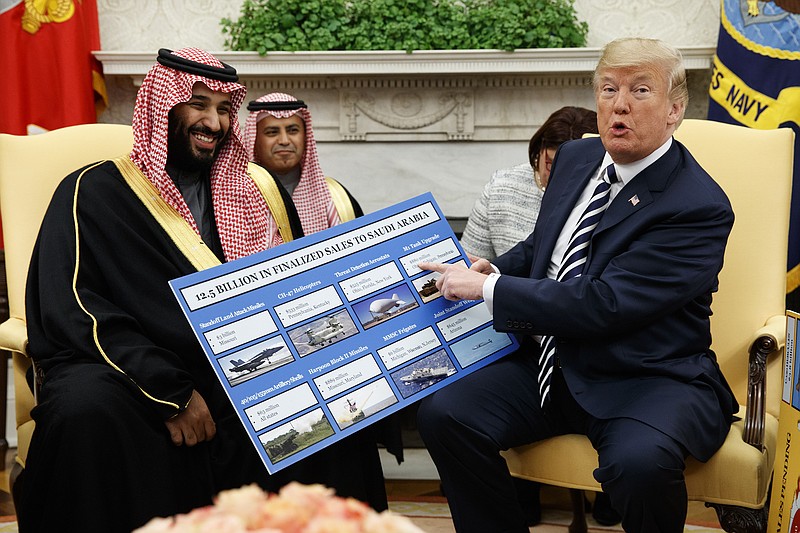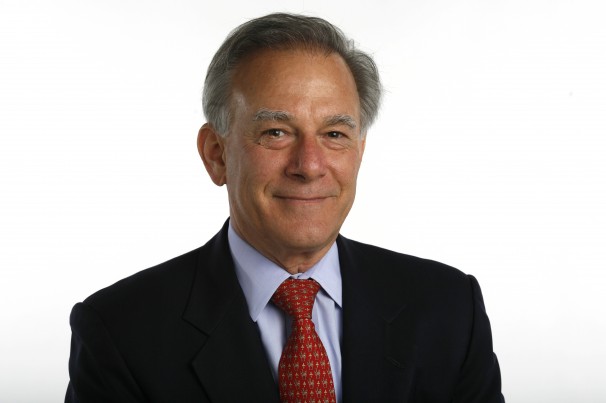WASHINGTON - As Saudi Crown Prince Mohammed bin Salman begins his whirlwind promotional tour of America, it's important to assess what he has already begun changing in Saudi policy, and what's still on his "to do" list.
The modernization of Saudi cultural and religious life is evident to any visitor to the kingdom. When I was in Riyadh three weeks ago, I saw many small signs of the expansion of women's rights, such as: Women's gyms are opening around the city, women's sports teams are organizing, women are attending soccer matches and cultural events, and women eagerly discuss what cars they'll be buying when they're allowed to drive in June.
Economic reforms, however, are mostly still in the planning stage. The privatization of Saudi Aramco has been delayed a year, and it's not yet clear how much of the oil company will be floated publicly, where the stock sale will take place, or its valuation.
The biggest foreign challenge for MBS, as he's known, is the potentially ruinous war in Yemen. The Saudi leader jumped into this conflict three years ago, hoping to smite an Iranian-backed force centered on the Houthi sect in northwest Yemen. The Houthis managed to ally with former president Ali Abdullah Saleh, and a deluge of Saudi bombs and artillery devastated the impoverished country but hasn't yet forced the Houthis to accept a settlement.
MBS insisted the tide is turning in Yemen during more than two hours of discussion at his palace on Feb. 26. He said the Houthis had blundered by killing Saleh last December, two days after Saleh switched sides and backed Riyadh. His murder infuriated Saleh's family and tribal allies, MBS said, and galvanized resistance to the Houthis.
Prospects for a Yemen settlement have improved, another senior Saudi official told me. A model is the deal that was nearly reached 18 months ago in Kuwait. Now, as then, a key Saudi demand is that the Houthis give up heavy weapons before a transitional government is in place; the Saudis fear a repetition of Lebanon, where Hezbollah kept its weapons after the end of the civil war and became a state within the state.
One little-noticed area of change is Saudi Arabia's relationship with Iraq, which has been stunted for a generation. MBS has met Iraqi Prime Minister Haidar al-Abadi and held several meetings with a senior Iraqi security leader. Foreign ministers have exchanged visits, too. Both sides laud the sharing of information about potential threats. The two countries have established a joint "coordination committee" to facilitate further discussion.
Saudi-Iraqi cultural and economic contacts have also expanded: A soccer game between the two nations in Basra in February was a raucous moment of sports diplomacy. An international oil and gas exposition in Basra, planned for December, will give another chance for the two countries to mingle, just a few kilometers from the Iranian border.
And then there's the religious rift: The Saudi-Iraqi estrangement in recent years helped worsen the sectarian divide between Sunnis, who regard Mecca as their religious center, and Shiites, who look to Najaf in central Iraq as a holier shrine even than Qom in Iran. MBS has tried to bridge this religious divide, partly as a way of undercutting Iranian influence, and Iraqis and Saudis both report progress.
MBS is an autocratic young leader in a hurry. He wants to fight every battle at once. But he needs to be in the business of solving problems, as in Yemen and Iraq, rather than picking new fights with Iran. And in his travels across America this month, he'd be wise to make some friends outside the Trump White House.
Washington Post Writers Group

